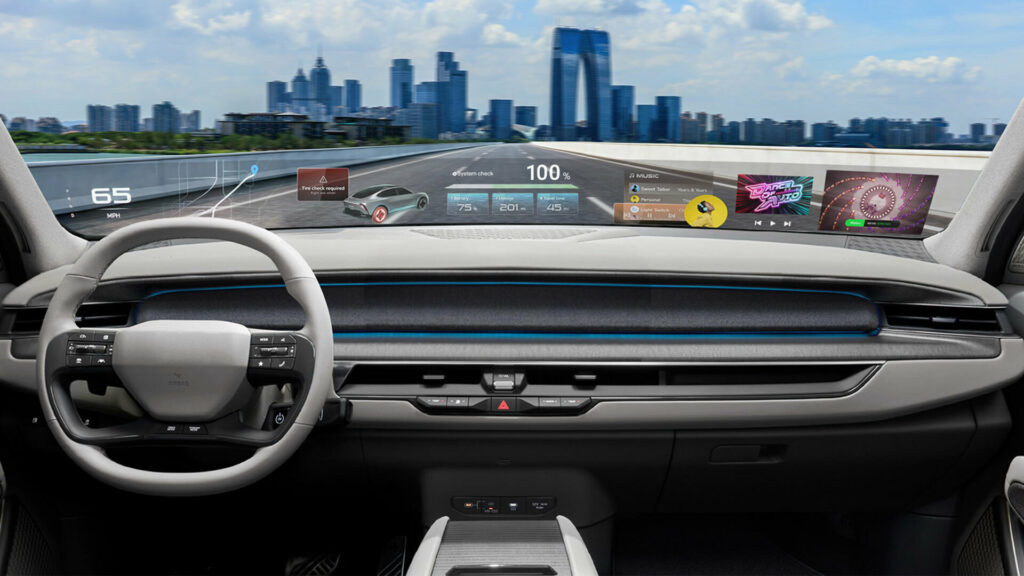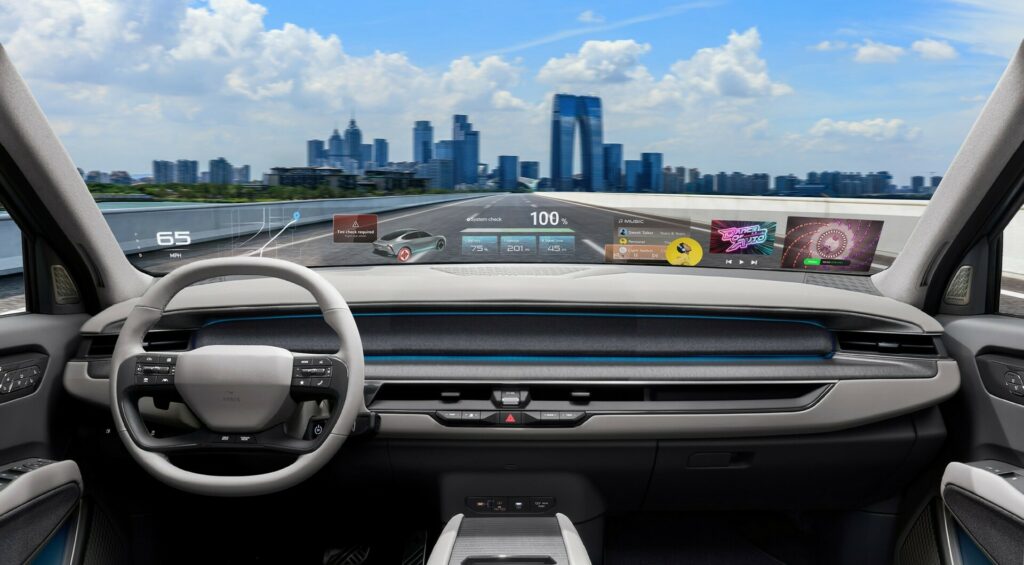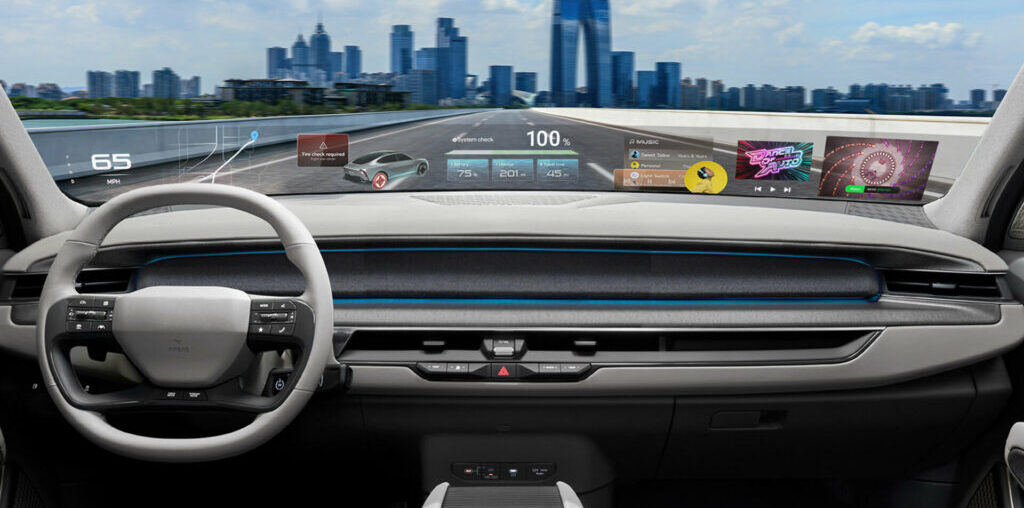
- Hyundai Mobis plans to replace every screen in your car with holographic versions projected onto the windshield.
- The company is working with Zeiss to make it happen and mass production could begin as early as 2027.
- Future vehicles could be equipped with a high-tech projector and a thin film that is applied to the windshield.
The screen wars have reached new heights with the Cadillac Escalade flaunting a gargantuan 55-inch display and the Lincoln Navigator trailing just behind with a 48-inch screen. However, both integrations leave something to be desired as they’re essentially just slapped on top of the dash, contributing little to the overall design cohesion. It makes you wonder when automakers will finally move beyond this game of digital one-upmanship.
var adpushup = window.adpushup = window.adpushup || {que:[]};
adpushup.que.push(function() {
if (adpushup.config.platform !== “DESKTOP”){
adpushup.triggerAd(“4d84e4c9-9937-4f84-82c0-c94544ee6f2a”);
}
else{
adpushup.triggerAd(“6a782b01-facb-45f3-a88f-ddf1b1f97657”);
} });
That change might be coming sooner than expected, thanks to Hyundai Mobis, which has teamed up with optics specialist Zeiss for a “holographic windshield display.” It effectively turns the windshield into a high-tech head-up display that can replace the digital instrument cluster, infotainment system, and front passenger display. Furthermore, since it’s just a projection, drivers can “check multiple pieces of information without taking their eyes off the road.”
More: Hyundai Mobis’ Roll-Up Screen Could Be The Next Big Thing For In-Car Displays
Despite sounding like a far-fetched fantasy, the companies said “this dream technology, previously existing only in movies or advertisements, is about to become reality.” In particular, if everything pans out, mass production could begin as early as 2027.
var adpushup = window.adpushup = window.adpushup || {que:[]};
adpushup.que.push(function() {
if (adpushup.config.platform !== “DESKTOP”){
adpushup.triggerAd(“5646c171-cb6e-4e2c-8440-49013ca72758”);
}
else{
adpushup.triggerAd(“e7c4c913-3924-4b2d-9279-6c00984dd130”);
} });
While details are still somewhat hazy, Hyundai Mobis said the display relies on a high-tech projector as well as a transparent film that is applied to the windshield. The film itself is barely thicker than a strand of human hair, measuring just 100 micrometers.

Preliminary product development is already underway and the technology was recently demonstrated for “domestic global automaker customers,” which presumably means Hyundai and Kia. Regardless, the company has been open about attracting new customers and pointed to a market research firm that said the “worldwide Holographic HUD market is expected to grow to about 7 million units by 2030, establishing itself as a new trend in the next-generation display field.”
While it remains to be seen if holographic displays are the next big thing, Hyundai Mobis said it’s a dramatic evolution from existing head-up displays and one that will enable interiors to be open and airy.
var adpushup = window.adpushup = window.adpushup || {que:[]};
adpushup.que.push(function() {
if (adpushup.config.platform !== “DESKTOP”){
adpushup.triggerAd(“e96f0476-8b1d-4bb8-b64c-33f9656987b2”);
}
else{
adpushup.triggerAd(“0f9edca9-aa84-4c07-8987-4cad23928c2d”);
} });


